
One of the things I most enjoy about Morning Show Boot Camp each year is getting a unique perspective from those who make their living from behind the mic. And this year was no exception.
In AQ3, our study of air talent, more than 600 on-air professionals opined about radio, their careers, COVID, and the companies that pay their salaries. After conducting the original studies in 2018 and 2019, I wasn’t planning on being surprised by the key findings in this year’s version. Sure, the pandemic has warped the industry in ways we couldn’t have imagined. But I generally have a pretty good bead on what air talent are thinking and feeling.
Until Bert Weiss invited me to participate on his MSBC 33 panel: “Managing Content in a PC Charged World.” The stage was loaded with talent and great perspective.
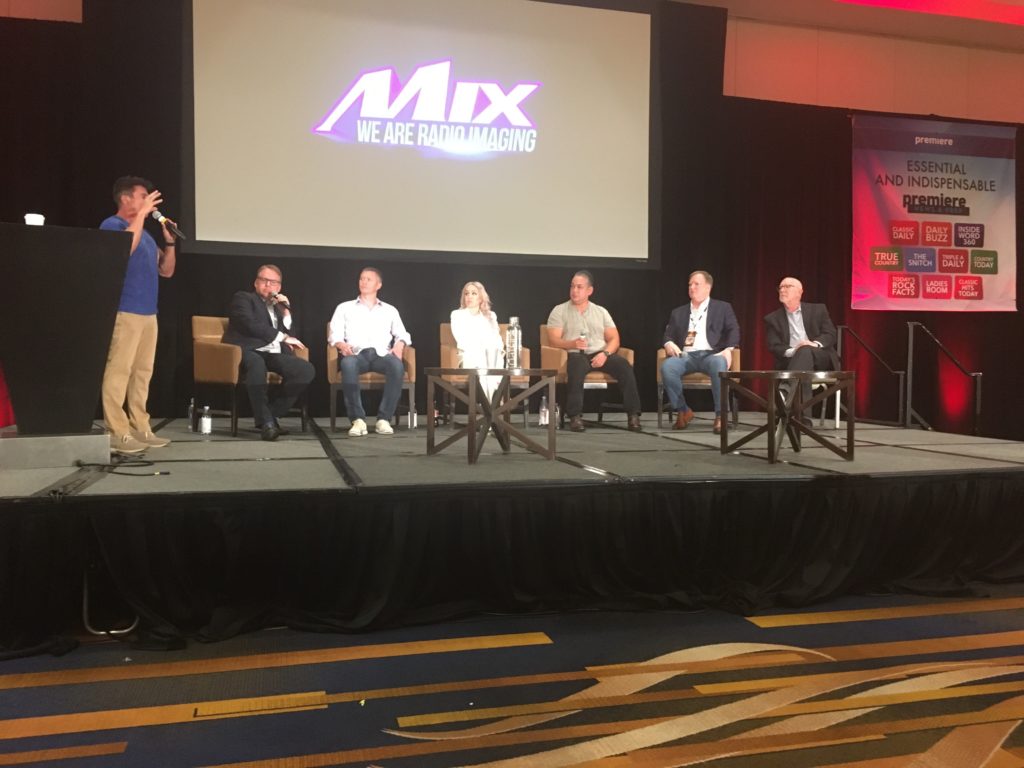
Seated left to right in the photo:
- Brian Philips – Cumulus’ head of programming, and a guy who has managed high-profile talent in radio and TV
- Brian Sherman – Half of the sensation “Sherman & Tingle Morning Show” at The Drive in Chicago
- Dana Cortez – Host of her own syndicated radio show, and a fantastic panelist no matter the topic
- Cat Thomas – PD of two iconic stations in Seattle, Hubbard’s Warm and Movin’. I’ve worked closely with Cat in Jacksonville at WAPE and Rock 105.
- Louie Diaz – OM for Cumulus’ Atlanta cluster, and VP of Contemporary for the company
And then there’s Bert himself (standing far left), inimitable host of “The Bert Show,” a perfect choice to herd us cats and get the most out of a controversial topic that impacts more talent than I could have imagined.
It seems like every decade or so, there’s a societal/cultural blowup that somehow impacts radio personalities, especially those known for their opinions and candor.
For me, perhaps the most dramatic of these was the controversy that took place during the Halftime Show at Super Bowl XXXVIII in 2004. A few years ago, I wrote a blog post about that infamous event and its ripple effect on radio:
“(2004) was the year that become known for the infamous “wardrobe malfunction” during Janet Jackson and Justin Timberlake‘s set, produced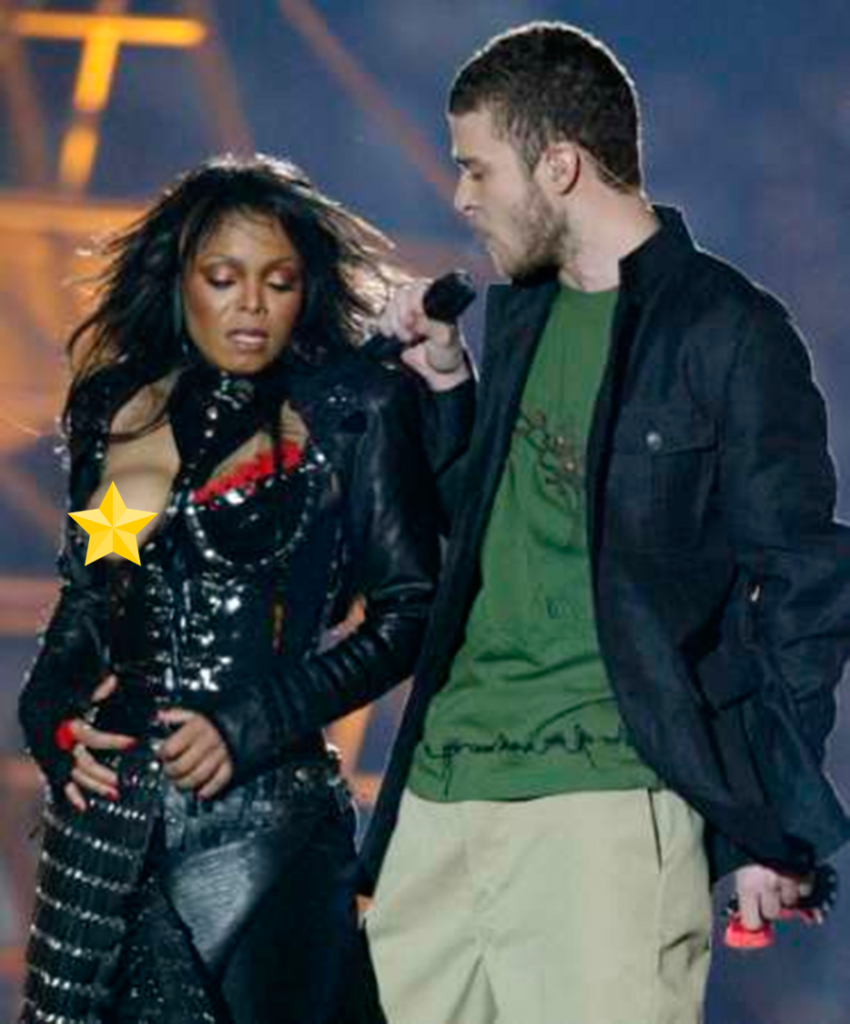 by “MTV (who was relieved of its Super Bowl halftime duties ever since).
by “MTV (who was relieved of its Super Bowl halftime duties ever since).
Strangely, that kerfuffle sent shockwaves through the radio industry, as the FCC became more vigilant about going after morning shows for inappropriate content, from Howard Stern (still on broadcast radio at that time) to Drew & Mike to Lex & Terry to Bubba the Love Sponge.
Everyone doing “shock radio” (as it was called back then) felt the chill, not to mention all those perplexing conference calls with the legal department trying to determine the words that were Kosher and those that were “fineable offenses.” And the fines were stout, magnified by many companies informing talent that if they slipped up, they had to whip out their personal checkbooks to make things right with the Commission.”
Everything has changed and nothing has changed.
Here we are 17 years later, and our polarized society, “cancel culture,” and other events have ushered in a very different – but every bit as ominous – chill throughout the American radio industry.
Back in 2004, you could debate pretty much anything with someone from “the other side” with impunity. Today, the mere mention of the President, face masks, vaccines, or Afghanistan is liable to start World War III.
That sentiment was reflected in AQ3 where we gave our respondents the chance to agree or disagree with the following statement:
“I’m concerned about covering topics that may offend certain segments of the station audience/my audience.”
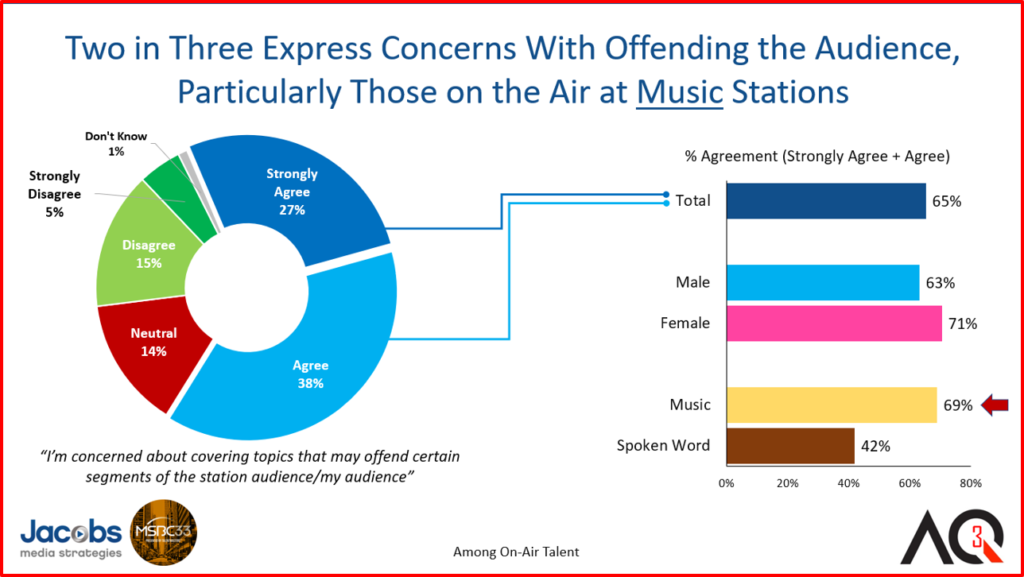
I didn’t see this one coming. Nearly two-thirds of our on-air talent sample agree or agree strongly with the statement. That’s huge.
And perhaps in an even bigger surprise – to me – those who are hosts on music stations express even greater concern. Nearly two-thirds share their PC concerns.
The panel ran with this jump ball of a question, discussing the full range of variables in the mix – who you work for (the station, the company, the programmer), your level of trust with your bosses, and your relationship with the audience.
 As more than one noticed, that last item was the key to KISS 108’s Matty Siegel skating his way in and out of his comments about Demi Lovato this past May. On the other hand, the panel also pointed to the comments by the (former) 97Rock morning show in Buffalo as indefensible.
As more than one noticed, that last item was the key to KISS 108’s Matty Siegel skating his way in and out of his comments about Demi Lovato this past May. On the other hand, the panel also pointed to the comments by the (former) 97Rock morning show in Buffalo as indefensible.
Oftentimes, it comes down to the show’s EI – or Emotional Intelligence – to serve as a guide for how to traverse those slippery slopes. And it means asking important questions before the On Air light goes on.
Is yours the kind of show that has a “trust bridge” with listeners as well as those who sign your paycheck?
Programmer Louie Diaz reinforced the importance of insulating talent from every complaint email that comes in. And Dana Cortez reminded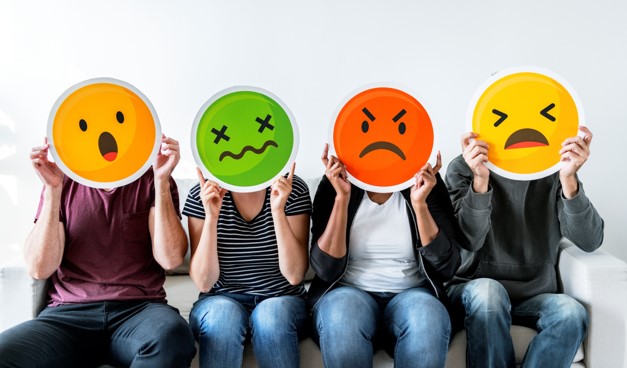 attendees there are days when even “happy shows” have to confront – or at least acknowledge in some way – a big, serious meaty news story, whether it’s COVID, the insurrection, or Black Lives Matter protests.
attendees there are days when even “happy shows” have to confront – or at least acknowledge in some way – a big, serious meaty news story, whether it’s COVID, the insurrection, or Black Lives Matter protests.
Of course, other shows are about escape – the place to hang out for a stress-free, fun experience. They’re the last place listeners go to hear a rundown of the controversial issues of the day.
And as the panel indicated, it is mission critical to know your station, your audience, your company, your boss – and of course, your show.
Listener expectations go to the heart of whether a show can/should take on a topic that veers outside of the usual “Second Date Update” type of material.
And how do you make that determination?
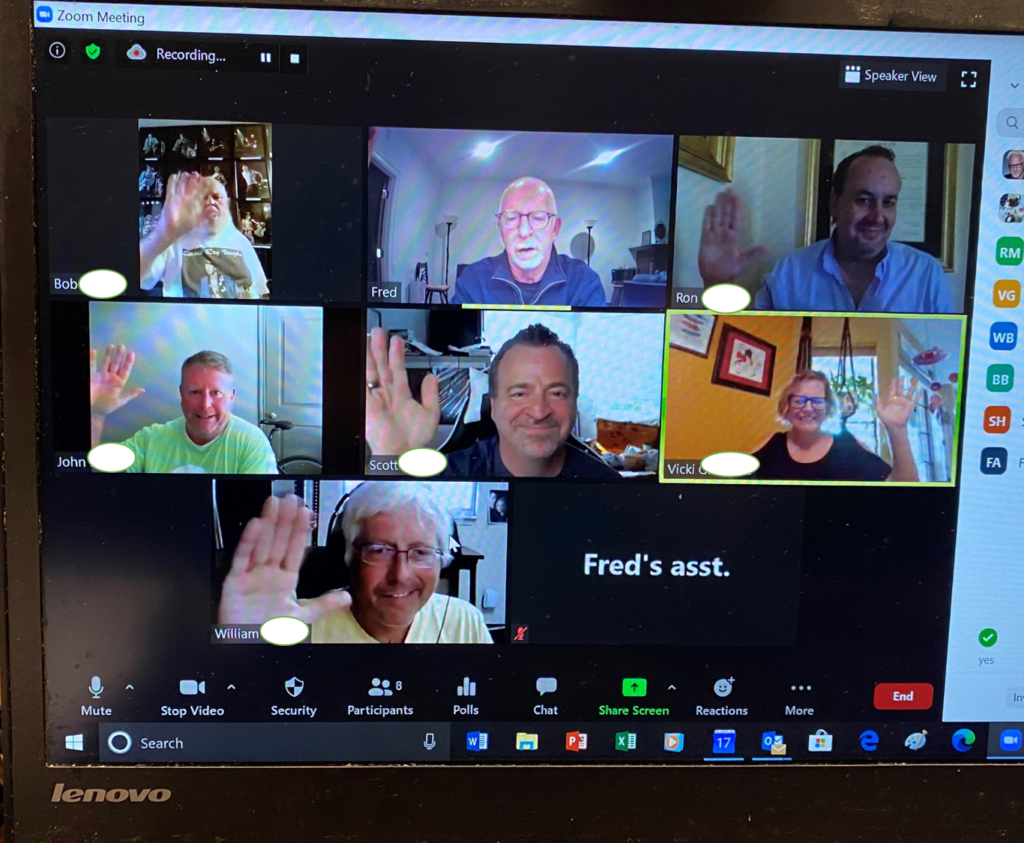 Yours truly suggested taking the time to conduct a couple Zoom focus groups to take the audience’s temperature. That type of simple, inexpensive exercise can provide an important look into the mindset of the audience and their tolerance for controversial topics from your key personalities.
Yours truly suggested taking the time to conduct a couple Zoom focus groups to take the audience’s temperature. That type of simple, inexpensive exercise can provide an important look into the mindset of the audience and their tolerance for controversial topics from your key personalities.
We are living in a time when fear is palpable, everyone is offended, and the audience has their own feedback tools for firing back at a station or a show.
Our respondents acknowledged how social media can be a hotbed of emotion that can stir up hostilities and anger. But most agreed deleting inflammatory posts is a last resort.
Controversy on the airwaves becomes a personality-focused decision, but one that is best made in collaboration with other key team members in the mix – the PD and/or the GM, and depending on the specific situation and her tolerance for hothouse situations.
And ultimately, talent must decide how to handle those hot potato issues to make sure the show, the station, and careers don’t end up getting burned.
Of course, you could always call your consultant.
- Media And Technology In 2025: Believe It Or Not! - April 18, 2025
- In Radio, You Just Never Know - April 17, 2025
- The Secret To Making A Great Podcast (And Great Radio) - April 16, 2025




Fred – I loved this – but i want more detes, examples. Who is Demi Lovato ;-)? Talking heads on radio are talking about topics that many family members can no longer touch with a barge pole. It’s a unique role the industry plays – and it does require some artful skating among all those relevant parties – management, audience, colleagues, the FCC, etc. Would love to here some specifics, though, but only so many hours in the day, i know.
Cheers Roger
We all know that shows like “All in the Family” could never be made today–shows that were intentionally controversial. But as a fan of old TV shows, I’m shocked at how often I see something on “Leave it to Beaver” or maybe even more so the old “Merry Melodies/Loony Tunes” cartoons from the 40’s and 50’s that could never be made today. In some ways, I really do welcome an increased sensitivity to our changing societal standards, but in others, I mourn the loss of simply being able to laugh at ourselves and not take ourselves so seriously. (The caveat being so long as it’s clearly a joke and has no malicious intent.) I found that out the hard way this week with a Facebook post I had to take down–a post I thought was not at all mean and very clearly a joke. It’s just a a half-minute long. I’ll link it below if anyone wants to view it. I’d welcome the thoughts of others whether it “crosses the line.”
I don’t have the answers to all this but I do know the answer to radio’s problems will not be to become some completely bland, vanilla medium where everyone is afraid to say anything and nothing meaningful is ever said. The balance beam on-air talent must walk is getting more narrow all the time.
Here’s the link I had to take down: https://www.youtube.com/watch?v=zy798oWpbSo
I had seen the video online somewhere and it typifies the dividing line between those who see this stuff as harmless web humor and those who are offended by it. I know a standup comic who collaborates with his peers whose ages are all over the map. It is eye-opening who finds material (and one-liners0 offensive versus those who think it’s just great comedy. As for radio personalities, I totally “get” why they’re perplexed about where “the lines” are.
There is no such thing as “cancel culture” Fred. It is a conservative conceit designed to distract from systematic forces of suppression that really do exist,
The loudest voices claiming its existence are the ones that prosper most from it and do the most suppression of contrary viewpoints.
“Cancel Culture” is simply accountability for ones actions and what your audience will accept. It always has been and always will be.
What is acceptable is different on an AC station from a N/T station from a country station and different in Massachusetts from Missouri and from Maryland.
Any personality that complains about it doesn’t understand their audience and/or their community.
Thanks for more good fodder on this post, Mike.
Not too surprised that music hosts would feel more sensitivity on this. Talk hosts, expect, need, and thrive on the controversial; even all-news stations need the engagement. Would have been good to have a Black panelist as well, given the number of Black radio/audio hosts. Per some other comments above, I’m quite sure that my favorite movie producer Mel Brooks couldn’t make a one of his films today. He’s said as much. How many other filmmakers are stifled now by the new societal rules? One bright spot; the Ted Lasso phenomenon. That series is displaying how entertainment can be softer, and yet still truly funny. How can that concept be applied to radio/audio without being too smarmy and saccharine?